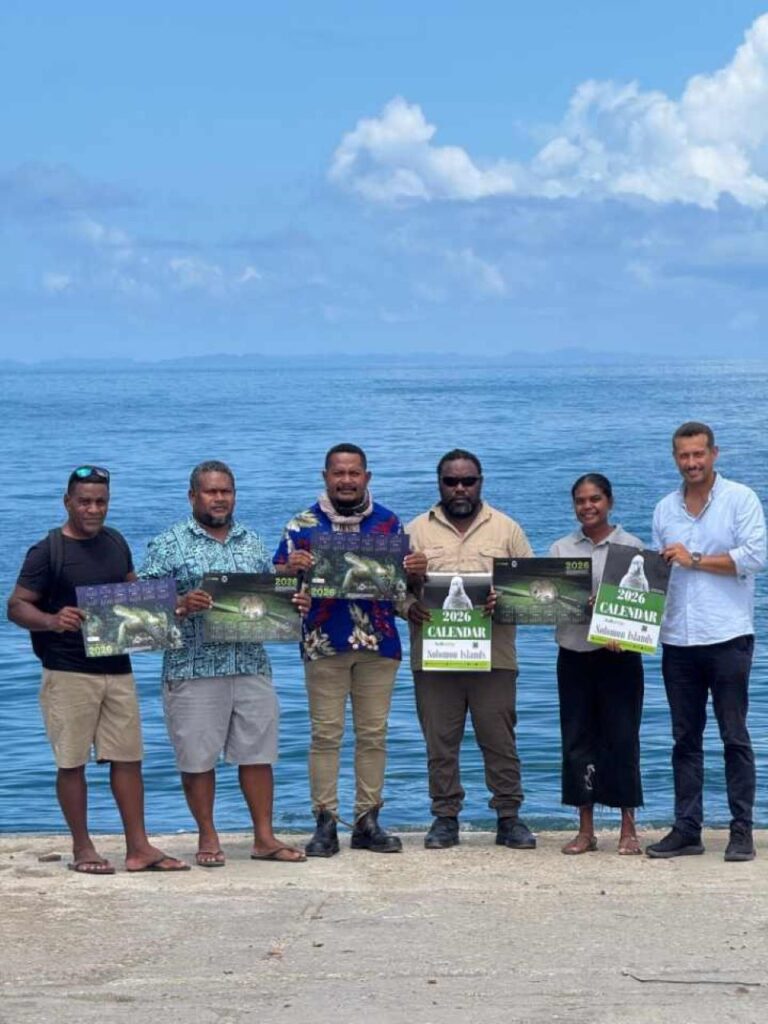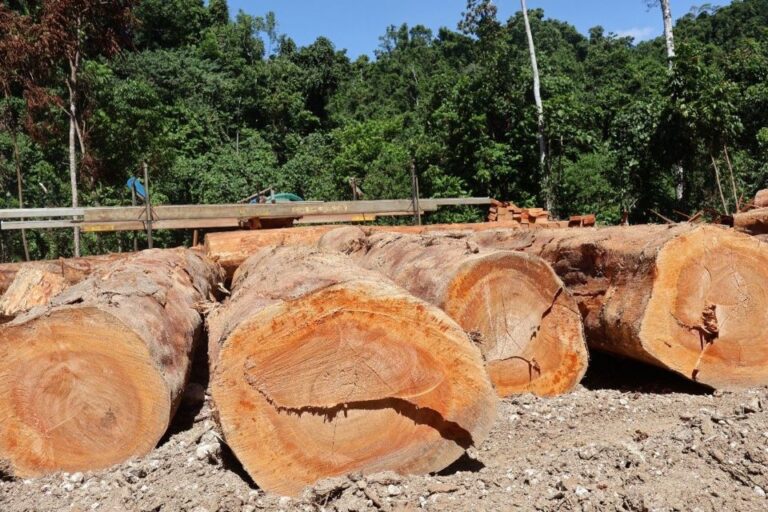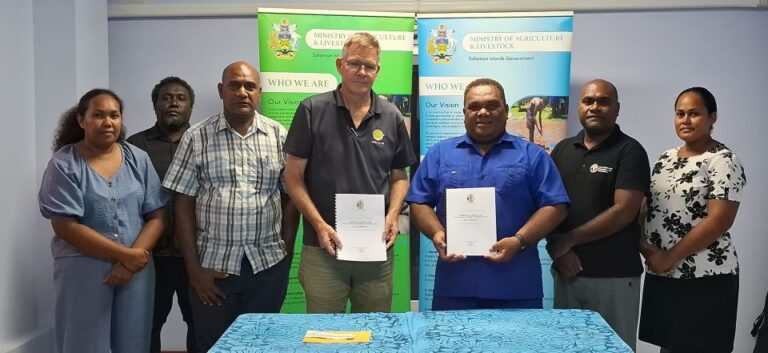BY CHRIS ALEX
IN the lush expanse of Choiseul province near the Kolombangara River, the Babatana Rainforest Conservation Project stands as a testament to the power of community-led environmental stewardship.
This initiative, covering tribal lands identified as a Key Biodiversity Area (KBA), is a collaborative effort to protect a vital rainforest ecosystem from the ravages of large-scale logging.
The Solomon Islands, despite their small contribution to global greenhouse gas emissions, are leading in carbon project innovation and implementation as nature-based solutions. The Sirebe Tribal Association has implemented the Babatana Rainforest Conservation Project, part of the Nakau Programme which works with Indigenous landowners to protect and restore forests and other ecosystems, and generate income through nature-based solutions. The project is a partnership between Nakau and local NGO, the Natural Resources Development Foundation (NRDF).
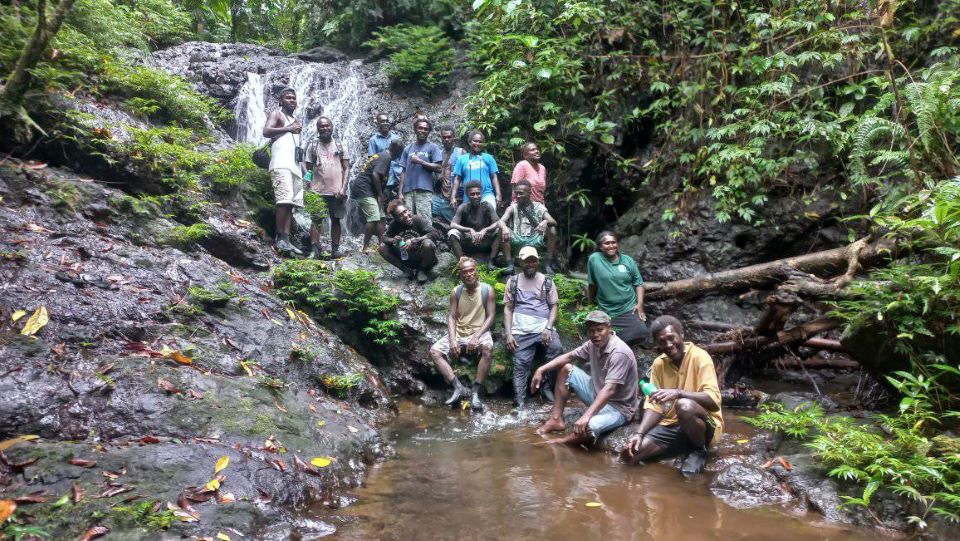
Cornelius Qaqara, a leader of the project, shared with ENVIRONMENT MEDIA the deep connection his community has with the forest.
“The forest is fundamental to the daily lives of both animals and humans. It’s more than just a resource; it’s our life, our future.
“Through this project, we want to create a network of local tribes to conserve the forest and work with partners on sustainable solutions.
“People from Choiseul and across the Solomon Islands must think carefully about the future of our forests. We must ensure that any development is sustainable and protects the life and future of our children,” Qaqara explained. This sentiment drives the project’s mission to unite local tribes in conserving their sacred lands and finding sustainable alternatives to deforestation.
This visionary approach has seen eight tribal lands under the Babatana project actively conserving their rainforests, ensuring that their sacred lands remain untouched by logging. In this way, the Babatana group is standing up to the environmental pressures that many other regions have succumbed to, offering hope for a future where nature and people coexist in harmony.
A landmark achievement for the Babatana project has been its certification for carbon credit trading, making it the first protected area in the Solomon Islands to gain such recognition. This milestone not only brings global attention but also provides financial benefits through carbon credits, offering local tribes an alternative income source that supports their conservation efforts.

With the growing recognition of Babatana’s conservation efforts, eco-tourism has emerged as an additional pillar of sustainability. The project, in collaboration with the Ministry of Culture and Tourism (MCT), aims to establish a high standard of eco-tourism within the Babatana area. Recent training provided by the Wildlife Conservation Society (WCS) in 2021, funded by the Natural Resource Development Foundation (NRDF) and New Zealand’s Ministry of Foreign Affairs and Trade, laid the groundwork for this.
MCT, which organized the training, sees eco-tourism as an opportunity to broaden awareness and appreciation of the Babatana Rainforest. By prioritizing sustainable tourism practices, the community hopes to create jobs and further strengthen local economies without compromising the delicate ecosystems that make this region so unique.
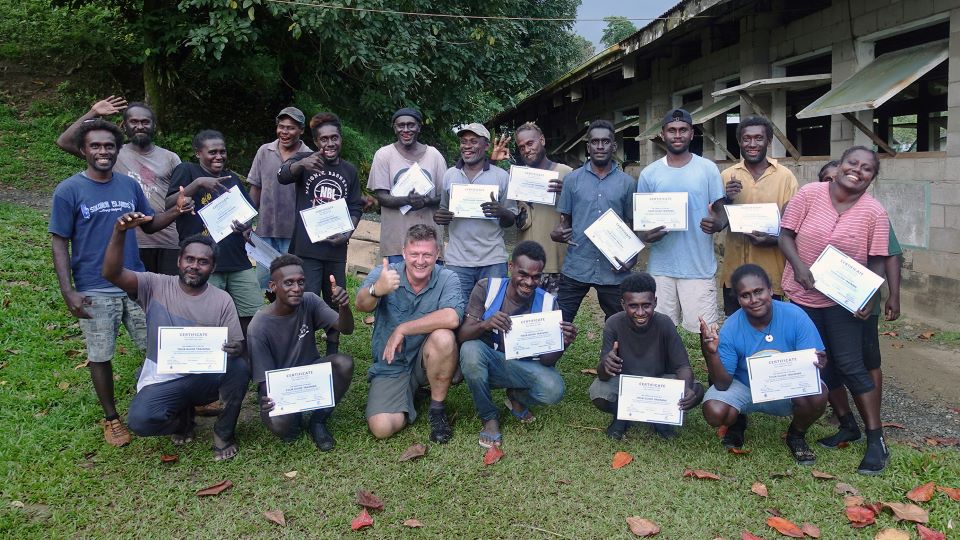
The Babatana Rainforest Conservation Project demonstrates how local communities, when empowered and united, can protect their natural heritage and promote sustainable development. It serves as an example of hope for preserving the delicate balance between human activity and environmental conservation for future generations.


